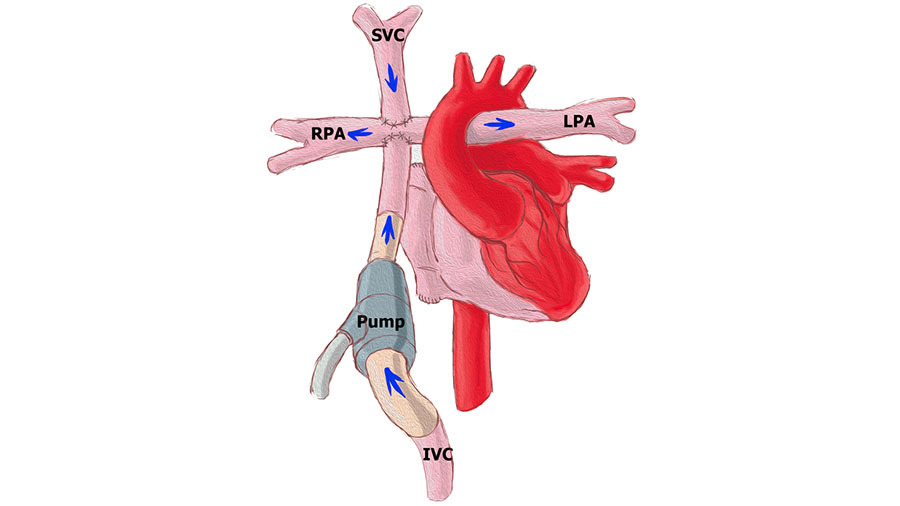Scientists from the Institute of Biomedical Systems of the National Research University MIET, together with colleagues from Sechenov University and cardiac surgeons of the Leuven Catholic University (Belgium) have developed a device that normalizes the work of the heart muscle in children with heart disease. The study is published in the journal Artificial Organs. The work of domestic scientists was supported by the Russian Science Foundation.
According to statistics, only in Russia thousands of children (0.013% of newborns) are born with dangerous diseases - one ventricle is missing in their heart, or it turns out to be underdeveloped and cannot fully pump blood. Without treatment, mortality in such children is very high, and donor heart transplantation in Russia has serious legislative restrictions.
Usually, after identifying the disease, the children undergo a complex three-step Fontaine operation, in which blood from the veins is sent directly to the pulmonary arteries, bypassing the right atrium. However, this procedure has drawbacks - there is an overload of the ventricle and pulmonary veins, due to which heart failure develops.
Therefore, to maintain the blood circulation of young patients, scientists invented a device that is a rotary pump. It connects the veins and arteries, and it itself is a miniature mechanical device placed in the inferior vena cava and providing additional blood pressure.
- Biotechnical circulatory support system for patients with a single functional heart ventricle
- © Maxim Denisov
In the course of the work of the team of scientists, it was possible to find the form of the so-called cavopulmonary compound, which allows evenly distributing blood to the pulmonary arteries with small hydraulic losses, while reducing the destruction of red blood cells and reducing the load on the only ventricle.
Researchers note that their work is multidisciplinary in nature - cardiologists and engineers joined together to create the device.
“The task of maintaining and restoring the quality of life of patients with a single functional heart ventricle belongs to the field of medicine ... The development of a mechanical circulatory support system is an engineering task, and it is impossible to solve one without the other,” said project manager Dmitry Telyshev, Ph.D., senior Researcher at the Institute of Biomedical Systems MIET, Director of the Institute of Bionic Technologies and Engineering of Sechenov Moscow State Medical University.
Scientists are confident that the implementation of their project will significantly increase the duration and quality of life of patients with underdeveloped ventricles of the heart or even with the absence of one of the ventricles.

